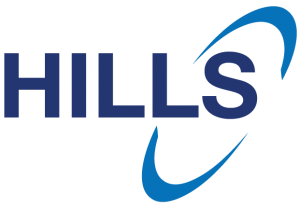HILLS was founded in London in 1927 by Kenneth Garle and started making number plates from metal plates embossed with letters. Garle’s entrepreneurial spirit was troubled by the time taken to make each plate and in his search for efficiency developed Flexwyt letters, white plastic letters that fit on top of the plate, and these were launched in 1948.
History of Hills
HILLS grew steadily and attracted the attention of Plantation Holdings who bought HILLS in 1958. Despite the change of ownership the innovation continued and retro-reflective plates were introduced to the UK market in 1972, which then saw 3M take control of HILLS to support their reflective material product. The market moved on and 1975 saw the introduction of acrylic number plates that eventually totally replaced metal plates.
The constant theme of innovation saw HILLS commission the first oil based ink production lines in 1983, speeding up production and offering a more durable number plate. The next step in printing innovation came in the early nineties, just after HILLS was sold to Brakeco in 1992. HILLS commissioned the first off-set litho printers with UV ink for logo production on number plates, another industry first for HILLS. This introduction coincided with HILLS first international foray into the French market in 1993.
The mid nineties saw HILLS consolidate its UK sites to a state of the art manufacturing facility based in Birmingham. The 23,000 sqft production plant houses the world’s first fully automated plastic plate production line, which remains the only one of its type in the UK and is still in use today. The technological developments weren’t only confined to the HILLS premises. Digital thermal print for in-house production followed closely by the development of dead-size material to enable no trim lamination was implemented in 1994. HILLS also developed and introduced the first digital thermal printers for self-assembly allowing consumers to buy component parts and digitally print plates on site. In 1998 HILLS acquired Hi-Speed Plates Ltd, expanding the business competencies.
The new century brought developments in both HILLS and the industry. A new British Standard for number plates was introduced in 2001, BSAU 145d, which saw major changes to the market. HILLS management also concluded a management buyout in the same year and the team was quick to market with their new product, HILTEK in 2002. The tide of innovation didn’t stop there, in 2003 the world’s first RFID enabled number plate, e-Plate, was developed and launched. HILLS processes were recognised in 2004 with the award of ISO9001:2008 QMS.
In 2006 HILLS introduced SECUREPLATE, the world’s first theft resistant plate. HILLS also expanded its European portfolio with entry into the Portuguese market, soon followed by expansion into Hong Kong in the following year. Continuing their innovation strategy, HILLS introduced laser printing technology in 2007 and also commissioned the first of 5 in-house laser cutting machines for material conversion.
ISO14001:2004 EMS was awarded in 2008 recognising HILLS manufacturing commitment to environmentally friendly practices. HILLS also commission the world’s largest wide-format digital printer to satisfy growing international demand in 2010 when HILLS also entered the Spanish market.
HILLS response to climate change and extremes of temperature resulted in the development and launch of METATEK in 2012. This year also saw HILLS awarded yet another accreditation in the form of OHSAS18001:2007 OHSMS, demonstrating a commitment to health and safety, making HILLS the only company in the market to hold all three accreditations. HILLS entered the Malaysian market with the opening of their latest subsidiary HILLS Numberplates (Maylasia) Sdn Bhd located in Kuala Lumpur.
HILLS response to climate change and extremes of temperature resulted in the development and launch of METATEK in 2012. This year also saw HILLS awarded yet another accreditation in the form of OHSAS18001:2007 OHSMS, demonstrating a commitment to health and safety, making HILLS the only company in the market to hold all three accreditations. HILLS entered the Malaysian market with the opening of their latest subsidiary HILLS Numberplates (Maylasia) Sdn Bhd located in Kuala Lumpur.
